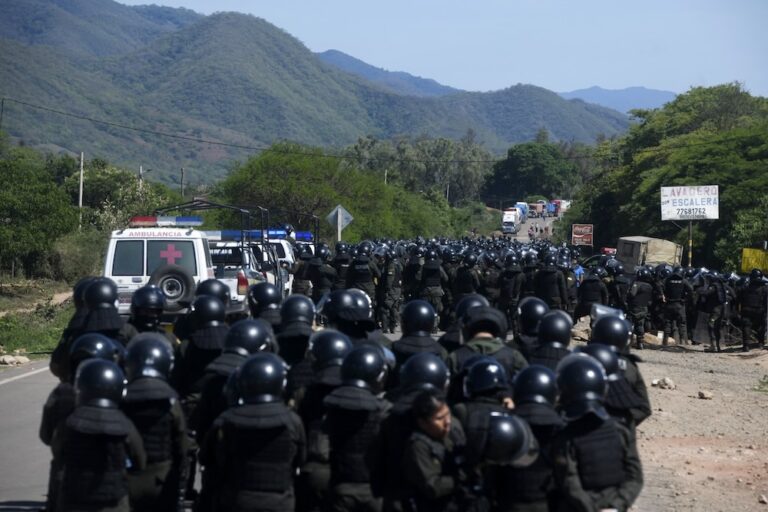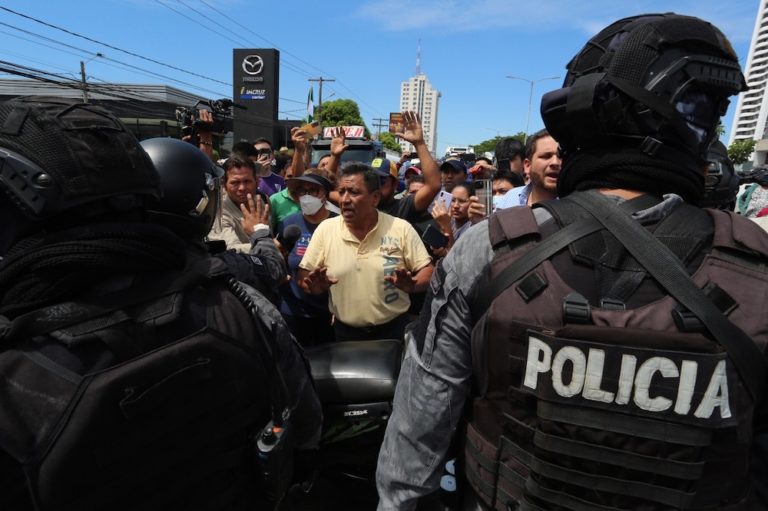(RSF/IFEX) – In a letter to Senate Speaker Enrique Toro Tejada, RSF protested the adoption of a law that authorises the National Electoral Court (Corte Nacional Electoral, CNE) to suspend media outlets that do not respect the rules on the circulation of electoral propaganda prior to elections. RSF also expressed its concern over the institution’s […]
(RSF/IFEX) – In a letter to Senate Speaker Enrique Toro Tejada, RSF protested the adoption of a law that authorises the National Electoral Court (Corte Nacional Electoral, CNE) to suspend media outlets that do not respect the rules on the circulation of electoral propaganda prior to elections. RSF also expressed its concern over the institution’s power to decide which media outlets should be authorised to circulate electoral propaganda. “Because the powers granted to the CNE by Article 119 of the new Electoral Code particularly endanger press freedom, we ask that this article be repealed,” stated RSF Secretary-General Robert Ménard. Legislative and presidential elections in Bolivia are planned for June 2002.
According to information collected by RSF, on 3 December 2001, the Senate approved a new Electoral Code. Article 119 on the circulation of electoral propaganda in the period leading up to elections stipulates that media have to register with the CNE. The CNE will subsequently publish “the list of media outlets that are authorised to circulate electoral propaganda”. The text obliges political parties to solely address authorised media outlets, otherwise they could face sanctions. Sanctions range from fines to the suspension of a medium “for a time period determined by the CNE”. Sanctions could also be imposed on media outlets that do respect the price list for the publication of electoral propaganda, as set out in Article 119.


